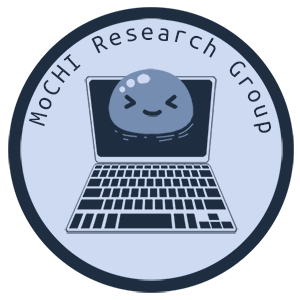Enrollment of computer science students across the globe has been increasing in recent years. This is in no small part due to (often false) promises of high paying and prestigious careers without demanding some level of higher education as is the case with other stereotypically well paying disciplines such as medicine or law. Another reason highschool graduates are drawn to computer science, and one less talked about, is its flexibility. There are few industries that don’t use some variety of tech, so for someone who wants to keep doors open it can be a good choice of major. However, leaving so many doors open poses a complicated challenge of picking the right door. So what should you do with your computer science degree? To answer this question I interviewed four professionals in four different industries about their career paths, job satisfaction, and advice for new graduates. While the question remains a nuanced one and difficult to answer, I hope these insights will help point you in the right direction.
Research Methods
I interviewed three software developers and one computer science professor. The software developers work at large companies in the following industries: Financial Services, AI, and Cloud Computing. I will refer to the software developers in these industries respectively as Fiona, Alice, and Claire. And I will refer to the professor as Phoebe. I focused the questions of this interview on three main topics: their decision to accept the job offer they were given, their satisfaction with their current or previous positions, and a reflection on future careers.
Interview questions:
- What factors went into your decision to pursue your career? Was it more motivated by what you enjoyed or what you were good at?
- Imagine the type of new grad who would want to go into this area. What topics or classes do they enjoy? What are their strong suits? What do they value in a career?
- What is your work-life balance?
- Do you get a sense of fulfillment from your job or pride in the work you’ve done throughout it?
- What work do you do that you enjoy most?
- What is the worst thing you have to do for your job?
- Is your job what you expected it to be? How is it different?
- What if anything would you want to pursue as a job in the future?
- Do you have any other advice to share for recent graduates?
In addition to these questions, I prompted participants to elaborate on applicable parts of their response. For example, two of the participants had previously worked other jobs in tech, so I asked them more about their decision to change careers. Some limits of this study include the several unrepresented industries. I would have liked to interview someone who worked at a startup or smaller company. However, I believe the advice here is broadly applicable and extends to these unrepresented areas.
Key takeaways
Fulfillment can come from anywhere. What works for you?
When I asked about whether participants found their jobs to be fulfilling, I was expecting them to comment on whether their work does tangible good for the world. And while this was a common theme, there was a wide diversity of areas in which participants found fulfillment, such as prestige, seeing results and growth, making decisions, helping others, and even work-life balance. Here’s how participants felt their jobs provided or lacked in these areas:
Prestige: Fiona and Claire both commented on enjoying the respect that comes with their position both from coworkers and from friends or family. This is not inherent, as Alice remarked to the contrary that she felt embarrassed of her job around her friends because both she and her friends view AI as having a negative impact on society.
Seeing results of work and growth: Fiona reflected that she gets to work on challenging problems, learn new things, and feel fulfillment when she understands something new. However, Alice lamented that she “doesn’t see any tangible effects” of her work and gave this as a reason for lacking fulfillment.
Helping others: The “others” you help in your career don’t have to be such obvious examples as they tend to be in fields like medicine or social work. This type of fulfillment can come from helping your team or from teaching students. This area was a strong motivator for career changes. Phoebe cited wanting to help others as the main reason she left her first job in industry. Similarly, Alice is considering a career change because she doesn’t feel like she is helping others as much as she would like to, but still enjoys helping coworkers when she has the opportunity.
Decision making: A common response (shared by all three software developers) to the question regarding a potential future career was the desire to have a more managerial position where they control decision making. Fiona summed up this feeling saying “it could be fulfilling to get to be more involved in decision making and strategizing, and supporting the team.” Claire added that she wants to be promoted because in a junior position “you are just doing implementation, its not really your own ideas.” Alice shared that she would like to found a start-up because she “would work really hard if it was for something [she] care[s] about.”
Life: Alice felt that although she doesn’t get fulfillment from her job, she still is grateful that a good work-life balance means she can get fulfillment outside of her career. All the software developers felt their work-life balance was much better than average, but also commented on the importance of setting those boundaries and that they have coworkers who don’t maintain their work-life balance as well.
All jobs have their downsides so find a worthwhile tradeoff.
All participants described certain tradeoffs involved in their career. For example, Phoebe disliked her work-life balance and navigating discipline in cases of academic dishonesty, but she felt that since she is passionate about teaching and helping her students, the tradeoff is more than fair. In industries where work-life balance is better, the tradeoffs are different. Fiona complained about the release and testing cycles of her position saying she did not realize how much of her job would be paperwork and tedious testing, but she enjoys working on the actual code which makes up for all that tedium. A popular downside of tech roles cited by Claire and Alice is having an on-call period which negatively impacted their work-life balance. But Claire countered that she felt the on-call was worth it because her previous role in tech consulting involved a lot of busy work which in her opinion, was worse than on-call. Even, Alice, the most pessimistic interviewee felt that although she did not enjoy or feel fulfillment from her job, she feels blessed to have it and has no regrets about accepting the job offer because of the financial security it provides and because it looks impressive on a resume as a stepping stone to whatever her next career will be.
We learn by trying things, so try things and keep your options open.
The software developers shared that the skills they learned in class were not as important as broadly applicable skills such as problem solving, collaboration, and being detail oriented because these skills allow for flexibility and quick adaptations to the frameworks of a new career. Fiona emphasized her gratitude that her job teaches her valuable knowledge about both software and finance. She takes comfort in knowing she can try something new because her career keeps her up to date with recent developments in tech which is such a fast evolving industry, especially with AI. One of the best parts about being in tech is its flexibility, so it is valuable to find a career that helps you preserve this quality. Claire shared that she changed careers soon after starting her first career because it “wasn’t using the degree to the fullest.” By switching to a career with more actual coding, she was able to continue to practice the skills she learned in college and grow with the industry.
As soon as you know what you enjoy, chase it!
When asked about her regrets, Phoebe said her only regret was not switching from industry to teaching sooner. She discovered her love for teaching from being a teaching assistant which caused her to seek out her current career which she is much happier doing. She had this advice to share: “Don’t take years off if you are doing a PhD. Just get it done.” Although, she added that this advice only applies if you are certain it is what you want to do. Claire remarked similarly that her career change was a great decision because she enjoys writing code and problem solving which her new career offers.
Conclusion
Looking for your next step out of college can be a source of stress and anxiety, so I want to conclude with some optimistic advice from those who have already taken that step: You don’t need to have everything figured out for your first job because as a new graduate, you have a long career path ahead of you and plenty of chances to figure out what you love. You’ll learn skills in your future career(s), and more importantly you’ll learn about yourself and what you want: What trade-offs are or aren’t worth it? What are you passionate about? Where do you find fulfillment? While I doubt anyone is walking away from this article with a sudden epiphany about their career path, I hope this article has given you some things to keep in mind that will make the decision a little clearer.


